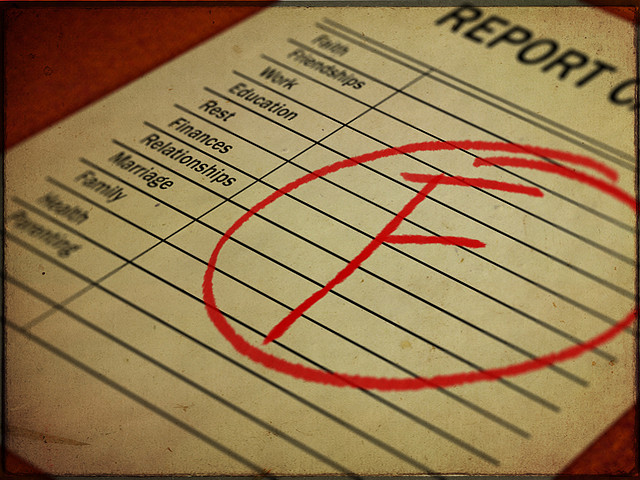
In this week’s #FeministFriday post, Elle talks about the Population Institute’s report card for her home state of Wyoming’s stance on reproductive rights. It doesn’t have a passing grade.
***
One of the acts of feminist activism that I’m proudest of is the time that I went with my friend E to speak against a proposed state bill that was going to impose a mandatory waiting period for abortions. I didn’t even speak all that well—they squeezed me in at the very end, because quite a few long-winded men had spoken before me, and they were pressed for time. So I gave the Cliff’s Notes version of my speech, stammered a thank you, and sat down to watch the bill get defeated much more narrowly than it should have been.
The sad-but-true part of my triumphant moment of activism is that the bill was aiming to restrict something that is already almost impossible to get in Wyoming. As far as I’m aware, we have precisely one clinic that performs abortions, and abortion is only one of the services the clinic provides as a general health center. The clinic is in Jackson Hole, Wyoming, which for those of you playing with maps at home, is in the northwest corner of Wyoming, and is economically and demographically so distant from the rest of Wyoming that we basically view it as an annexed portion of California. If you’re “lucky” you live in the southeast corner of the state, and can drive for an hour or two into Colorado. So I already knew that my home state wasn’t doing too well on the whole “reproductive rights” front.
However, I didn’t know quite how badly Wyoming, or the country in general, was doing until the Population Institute released its latest report card on reproductive rights. The results are…. not good. The national average grade is a D+, thanks to a variety of factors including the multiple attempts to defund Planned Parenthood, the multiple assaults on abortion clinics, the fact that nearly 50% of all pregnancies are unintended, etc.
Wyoming, on the other hand, is one of nineteen states that received an F. Which is an even sadder accomplishment when you consider that the Population Institute used a grading scale where an F was anything less than 45.9 points. Aim high, Equality State. Aim high. Among other things that counted against my lovely home state: the fact that 96% of women live in counties with no abortion provider, our lawmakers had the “brilliant” idea to refuse the Medicaid expansion, and we don’t mandate sex education in our public schools. The sex ed I got growing up in Wyoming consisted mostly of “THESE ARE STDS, DO NOT GET THEM,” but at least it existed, so apparently I am one of the lucky ones.
Now, it may seem silly to pay so much attention to Wyoming when we are the least-populated state. (Apparently, we have about as many people as Luxembourg. The more you know.) But what is happening to women in Wyoming is emblematic of what is happening to women across the country, particularly rural women. The multiple attacks on reproductive rights create a vicious cycle: girls and boys do not receive proper education regarding sex, then girls in particular are denied proper access to contraception, then girls and women are granted almost no access to abortion (or their access is restricted to the point that abortion might as well still be illegal.)
You couldn’t do more to ensure an uptick in unintended pregnancies if you tried. And of course, unintended pregnancies have effects ranging from negative economic and social consequences for the mother to poor health and development for the children born to unprepared mothers. This is not to deny that many women who have unintended pregnancies turn out to be fantastic mothers, and their children are just fine. But I like to envision a world where “unintended pregnancy” is a rare condition—where all women who are pregnant (or almost all, because we are humans and mistakes are pretty much always going to happen) are that way because they want to be and not because they had inadequate education, or no access to contraception and abortion.
It’s honestly shameful that we are still having this discussion in 2016. It is beyond shameful that we are not only having this discussion, but that the voices of sanity and reason seem to be losing ground. We need to be doing a lot more to ensure reproductive rights for the girls and women in this country so that in 20 years I don’t have to be having a nostalgic conversation about the “good old days” when abortion was (kinda) legal and (some) high school students knew what condoms were.
***
Elle Irise is a regular contributor to This Week In Tomorrow. When she’s not gobsmacked by the poor performance of her home state, she studies gender in popular culture.
